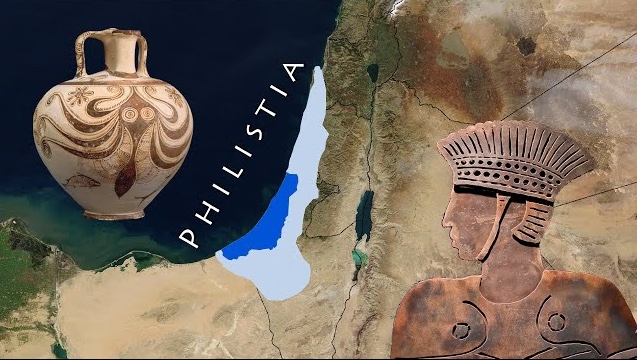Philistia, situated at the crossroads of the ancient world, has emerged as a bustling Mediterranean hub for trade and commerce. The strategic location of Philistia, nestled between the great civilizations of Egypt and Mesopotamia, has made it a pivotal center for economic activities throughout the ages.
One of the key factors contributing to Philistia's prominence is its extensive coastline along the Mediterranean Sea. This coastal advantage has facilitated maritime trade routes, connecting Philistia with diverse cultures and markets. The Phoenicians, renowned seafarers of the ancient world, established crucial trading networks that linked Philistia to the far reaches of the Mediterranean. This maritime connection not only fostered the exchange of goods but also facilitated the interchange of ideas, technologies, and cultural influences.
The city-state of Ashkelon, a prominent urban center in Philistia, played a pivotal role in this thriving trade network. Its well-developed port became a gateway for goods entering and leaving Philistia, contributing to the region's economic prosperity. The markets of Ashkelon bustled with merchants haggling over exotic spices, textiles, precious metals, and other commodities that traversed the Mediterranean trade routes.
Furthermore, the agricultural abundance of Philistia played a crucial role in its economic success. Fertile lands yielded crops such as wheat, barley, and olives, which became sought-after commodities in the Mediterranean trade circuit. Philistia's agricultural surplus not only sustained its own population but also fueled trade, as these products were exchanged for goods from neighboring regions.
The city-states of Philistia were not only hubs for trade but also centers of cultural exchange. The convergence of diverse influences from neighboring civilizations enriched the artistic, architectural, and technological landscape of Philistia. The vibrant tapestry of Philistine culture bore witness to the amalgamation of Egyptian, Mesopotamian, and Aegean elements, creating a unique identity that reflected the cosmopolitan nature of its trade-driven society.
Despite its economic prosperity, Philistia faced geopolitical challenges. The region became a battleground for competing empires seeking control over its strategic position. The Assyrians, Babylonians, and Egyptians vied for dominance, leading to periods of conflict and upheaval that impacted Philistia's economic stability.
Philistia's role as a Mediterranean hub for trade and commerce was pivotal in shaping the economic and cultural landscape of the ancient world. Its strategic location, flourishing ports, and agricultural bounty fueled a vibrant exchange of goods and ideas, making Philistia a dynamic center of economic activity in the Mediterranean basin. Despite the challenges posed by geopolitical rivalries, Philistia's legacy as a trading powerhouse endures in the annals of ancient history.




